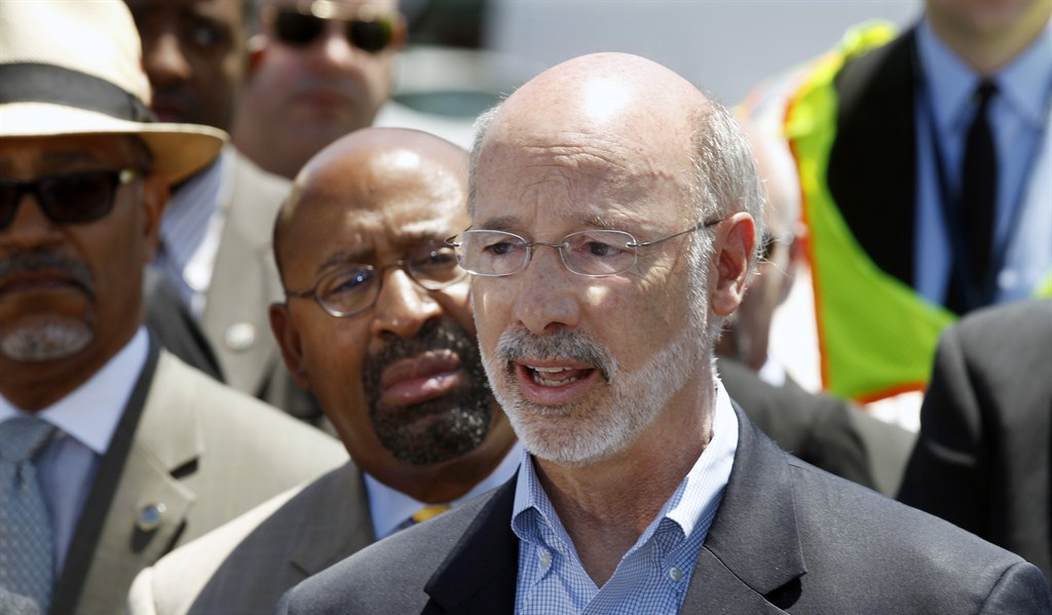Last week supporters of school choice won a victory in Pennsylvania, where a judge ruled that Democratic Gov. Tom Wolf couldn’t just gut funding to charter schools in order to balance the books for a struggling school district in Delaware County. Wolf intended to cut $24 million to the charter schools in the Chester Upland School District, but Judge Chad Kenney found the Wolf administration’s reasoning for cutting funding “wholly inadequate,” as reported by Watchdog’s Evan Grossman:
School choice advocates won a victory in court this week when a Delaware County judge rejected Gov. Tom Wolf’s plan to de-fund charter schools in the cash-strapped Chester Upland School District.As a means to mend the district’s bleeding budget, Wolf proposed slashing special education funding to Chester Upland charters and other cost-cutting actions. Judge Chad Kenney ruled late Tuesday night Wolf’s proposal to slash $24 million in charter school funding was “wholly inadequate” and found the state’s lawyers offered a flimsy argument for doing so.
[…]
Blocking the state from going after charters to achieve cost savings will have a ripple effect across Pennsylvania, especially in larger, fiscally challenged districts like Philadelphia, home to most of the state’s charter schools.
While Kenney ended plans to de-fund charter schools in Chester Upland, he upheld Wolf’s recommendations to put financial experts in place to solve the financial challenges the district faces — including initiating a forensic audit, bringing in a financial turnaround specialist to find immediate savings, and restructuring a loan agreement with the Department of Education.
Wolf has not hidden that fact that he wants a strong Pennsylvanian public school system. His current budget is currently having trouble getting passed in the Republican-controlled state legislature, which prompted the DEFCON-1-like response in Delaware County.
Recommended
In March, Grossman reported that Wolf made good on his promise to increase education funding by $1 billion, but charter school advocates also noted that it also included cuts to cyber charter schools.
In North Carolina, their cyber charter school program has already met its 1,500-member cap in what will be a four-year program that could expand if proven to be successful (WECT):
Some North Carolina students will make history when they return to school in the coming weeks. They won’t set foot in a classroom - instead, they’ll learn from home as part of the state’s new virtual charter school pilot program.Charter schools receive state funding and are governed by non-profit organizations, which sometimes contract with private management companies to run daily operations.
Lawmakers instructed the State Board of Education to launch the four-year program in the upcoming school year. The pilot could be altered or expanded after the trial run.
Two schools received the green light. Both plan to eventually serve students through 12th grade. They can have 1,500 students this year and grow to 2,592 by the fourth year.
[…]
NC Connections Academy (NCCA) will open with students in kindergarten through 9th grade. Connections Education, part of the Pearson company, will serve as the management contractor.
[…]
NCCA has already met its 1,500 student cap and is keeping a waiting list, a spokewoman said. The school has 59 students from New Hanover, Brunswick, Pender, Columbus and Bladen counties.
At the same time, cyber charter schools aren't necessarily a successful alternative. The Pennsylvania Cyber Charter School announced that they were cutting 43 jobs due to a decline in enrollment. The Agora Cyber Charter School produced rather awful results, according to a 2011 report by The New York Times.
The National Collegiate Athletic Association announced in April of 2014 that they were no longer accepting coursework from 24 virtual charter schools. In 2013, Colorado Virtual Academy (COVA) was forced to reorganize after poor results, and Tennessee's Virtual Academy was forced to close in 2014 due to similar poor academic performances.
Nevertheless, who's to say that targeting cyber charter schools' poor academic performance can't be used to attack school choice overall.
























Join the conversation as a VIP Member